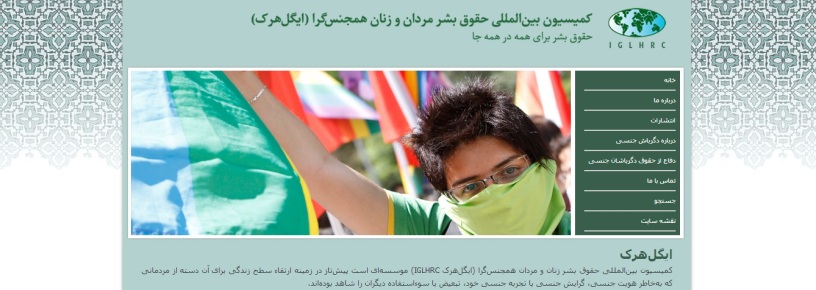 New York: The International Gay and Lesbian Human Rights Commission has launched a series of Persian publications and a mobile-friendly website to help the Iranian LGBT community cope with the country’s harsh anti-gay laws.
New York: The International Gay and Lesbian Human Rights Commission has launched a series of Persian publications and a mobile-friendly website to help the Iranian LGBT community cope with the country’s harsh anti-gay laws.
The manuals are a toolkit developed by experts for use by journalists, lawyers, activists, educators, LGBT people their supporters, reports iglhrc.org.
“They address challenges related to sexuality, gender, and LGBT rights, and are guideposts for working to end anti-LGBT discrimination in Iran,” the report said
Iran’s new Islamic Penal Code passed in 2013 criminalizes any consensual same-sex relations with punishment ranging from 100 lashes for sexual intercourse between women to death penalty for those between two men.
The law also criminalizes other non-sexual acts between members of the same sex, including touching and intimate kissing, which is punishable by up to seventy-four lashes.
“Despite extensive anti-homosexuality propaganda by the Iranian state-run media and the strict laws that penalize consensual same-sex relations, the Iranian LGBT community is resilient,” Hossein Alizadeh, IGLHRC’s Regional Program Coordinator for the Middle East and North Africa, said in the iglhrc.org report.
LGBT human rights advocates continue to strive for social recognition, legal equality, and physical protection within Iran, he said expressing the hope that the commission’s publications will help the Iranian LGBT community and their allies by providing such educational resources.
The five manuals available online and in Persian discuss challenges and frequently asked questions regarding sexual orientation, gender identity, and the human rights situation for LGBT people within the social and legal context of Iran.
The manual on “How to Discuss LGBT Issues” is for Persian-speaking media professionals and broadcasters.
The “How to Protect Your Online Security” manual is a guide for Iranian LGBT activists and community members whose Internet access is being monitored and blocked by Iranian authorities.
The next three manuals deal with law and documentation.
“How to Advocate for Your Rights Inside Iran,” is a legal survival guide for the LGBT community who may not have access to legal counsel; “Legal Defense Strategies and Best Practices for Those Charged with Sodomy,” is a guide for lawyers defending clients charged with same-sex relations and “How to Document and Report Human Rights Violations” is a human rights documentation manual for the Iranian LGBT community.
To make these new resources available to a wide audience in and outside of Iran, iglhrc.org has developed a mobile-optimized website in Persian. The website includes extensive information on the situation of LGBT people in Iran.
It also plans to make select titles from the series available in English in the near future.
The United Nations publication “Born Free and Equal,” translated by iglhrc.org into Persian is also available on their website as well as from the UN Office of the High Commissioner for Human Rights.
Source: iglhrc.org;76crimes.com

Reblogged this on Tiffany's Non-Blog and commented:
Thank you to Gay Asia News for posting this piece!
Welcome